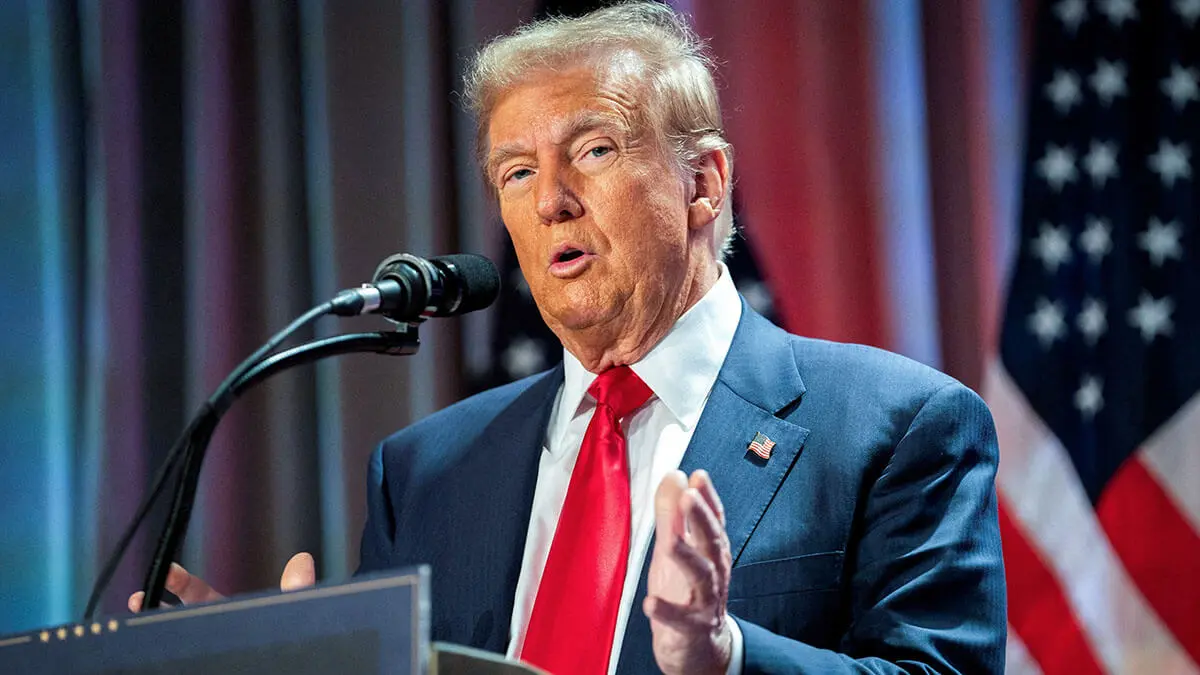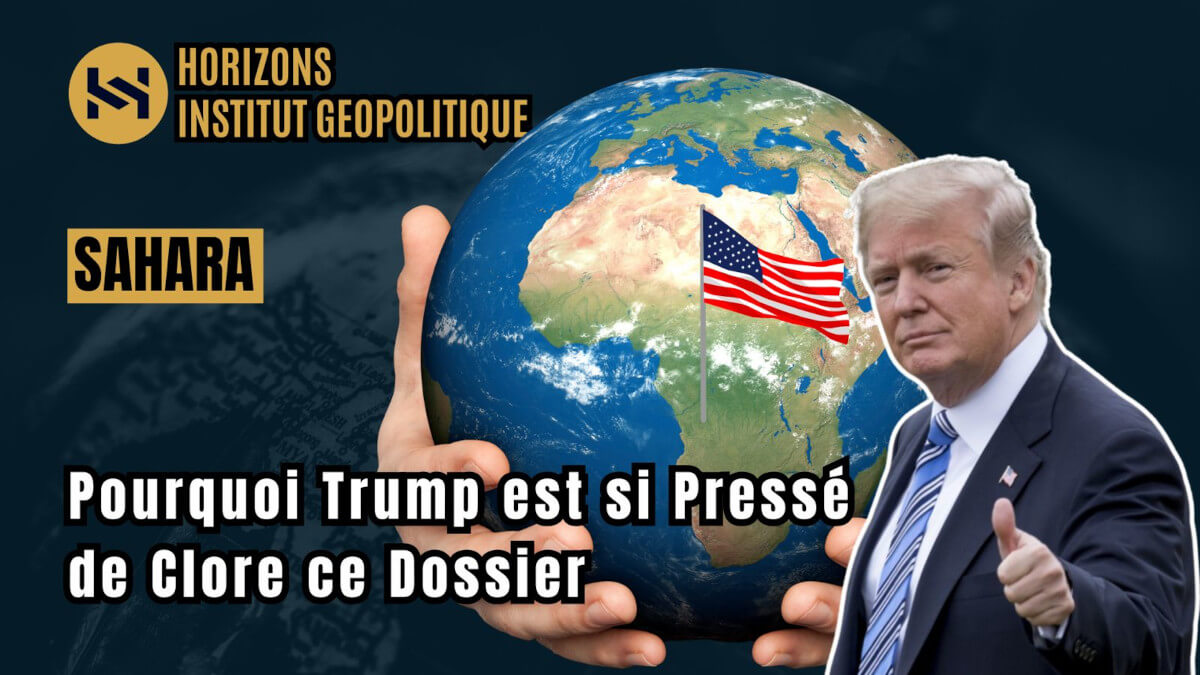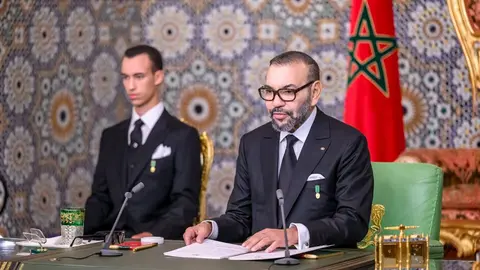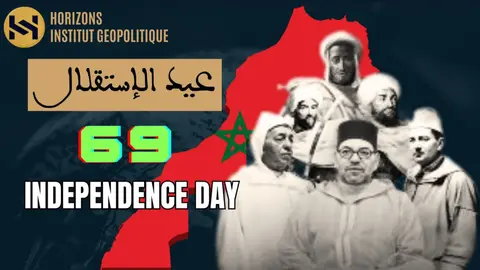Why Trump is in such a hurry to solve the Sahara conflict

- II. The Sahel: stabilising to better influence
- III. Africa: the new arena for global competition
- 1. The threat of FTO designation
I. Western Sahara: a diplomatic emergency for the United States
The Trump administration, which returned to power in January 2025, is showing remarkable eagerness to resolve the Western Sahara conflict, as evidenced by the recent announcement by Massad Boulos, presidential adviser for Africa and the Middle East, of direct mediation between Morocco and Algeria. In his interview with Al Arabiya on 18 April 2025, Boulos clearly stated: ‘The US announcement of support for Moroccan sovereignty over the Sahara does not mean that Washington is not concerned about the rapprochement between Morocco and Algeria,’ adding that ’200,000 Sahrawi refugees in Algeria are waiting for a final solution.’
This statement comes amid accelerated US diplomatic efforts. On 8 April 2025, as officially reported by US State Department spokesperson Tami Bruce, Secretary of State Marco Rubio ‘reaffirmed that the United States recognises Morocco's sovereignty over Western Sahara and supports the serious, credible and realistic autonomy plan proposed by Morocco as the only basis for a just and lasting solution to this conflict.’
With regard to the Sahara conflict, the White House began to take action well before Boulos' statement, discreetly pressuring Algiers to disarm the Polisario and dismantle the Tindouf camps. This pressure was partially confirmed by Algerian President Abdelmadjid Tebboune in an interview with the French daily L'Opinion: ‘We have refused to supply arms to the Polisario for the time being.’ This wording, including the reservation ‘for the time being,’ illustrates both the impact of US pressure and Algiers' persistent reluctance.
In recent weeks, further pressure, this time public, has been exerted indirectly on Algeria through the threat of designating the Polisario Front as a foreign terrorist organisation (FTO). A recent article published by the Hudson Institute on 18 April 2025, entitled ‘The Strategic Case for Designating the Polisario Front as a Foreign Terrorist Organisation’, presents detailed legal arguments and argues that ‘the Polisario Front meets all three statutory criteria for FTO designation’ under Section 219 of the US Immigration and Nationality Act.
The appointment of Massad Boulos, Tiffany Trump's father-in-law, as presidential advisor for Africa and the Middle East in December 2024 illustrates the importance the Trump administration attaches to this region. As indicated in his official biography, his background as a businessman in Nigeria through the family business SCOA gives him a deep understanding of African economic realities.

II. The Sahel: stabilising to better influence
The US eagerness to resolve the Sahara conflict is also explained by its direct implications for the stability of the Sahel, a strategic region facing multiple security challenges. This concern is reinforced by the growing presence of rival powers in the region.
The link between the Sahara conflict and instability in the Sahel is explicitly highlighted in the Hudson Institute article of 18 April 2025, which states that ’ Polisario-linked militants are fuelling instability across the Sahel, threatening US personnel, undermining regional governments and disrupting access to uranium, gold and rare earth deposits that are vital to global supply chains.’
The Hudson Institute article also notes that ‘Morocco is the last reliable bulwark against this collapse,’ emphasising that ‘amid this turmoil, Morocco remains a steadfast partner of the United States – neutralising terrorist cells, training regional forces and serving as a gateway for constructive Western engagement.’
The Trump administration sees Morocco as an essential partner in its strategy to stabilise the Sahel. As the official State Department statement of 8 April 2025 recalled, Marco Rubio ‘praised the leadership of King Mohammed VI and his ongoing efforts to promote peace and security in the region.’
III. Africa: the new arena for global competition
Trump's eagerness is not limited to the Sahara issue but extends to virtually the entire international agenda of his new administration. While Trump does have a four-year term, he must take advantage of his Republican majorities in both houses of Congress before the 2026 midterm elections, which could alter this favourable balance.
One of Trump's international priorities is to counter China's growing influence around the world, including in Africa. The US administration is aware of the African continent's enormous strategic economic potential, which promises the strongest future growth (demographic and economic) as well as immense mineral wealth.
Morocco as a pivotal state: the ‘Abidjan Doctrine’ adopted by Washington
US expectations regarding the Sahara aim to consolidate Morocco's new status as a pivotal state in US strategy in Africa. What is particularly noteworthy is that the US ‘Deep State’ has been ‘converted’ to the ‘Abidjan Doctrine’, a Moroccan geostrategy whose founding principles, based on a win-win approach, were set out by King Mohammed VI in his historic speech at the Ivorian-Moroccan Economic Forum in February 2014.
This vision, which advocates pragmatic South-South cooperation based on mutually beneficial economic partnerships, has gradually gained influence in US strategic circles. By appointing an expert on Africa in the person of Massad Boulos, Trump wants a peaceful Africa where US companies can develop their activities according to this new approach.
This strategic convergence marks a profound break with the American methods of influence of the 1970s in Latin America and even in Africa, where the CIA was the ‘flagship’ of US geostrategy. The current approach favours economic partnerships, direct investment and infrastructure development, moving away from the old practices of political interference and destabilisation.
This new orientation applies particularly to the Sahara issue, where recognition of Moroccan sovereignty is accompanied by US expectations in terms of a global strategic partnership. In its official statement of 8 April 2025, the State Department stated that Marco Rubio and Nasser Bourita had ‘discussed ways to strengthen economic and trade cooperation between the United States and Morocco, particularly in the renewable energy and critical minerals sectors’, illustrating this new win-win approach inspired by the Moroccan doctrine.
IV. Algeria under pressure: the US strategy of brinkmanship
Trump's eagerness to close the Western Sahara issue once and for all implies that Algeria will be subjected to unprecedented pressure, leaving it with virtually no room for manoeuvre. This pressure, already evident in recent statements and actions by the US administration, is likely to intensify in the coming weeks.
1. The threat of FTO designation
The possible designation of the Polisario Front as a foreign terrorist organisation (FTO) is the most visible of these pressures. This threat, explicitly mentioned in the Hudson Institute article of 18 April 2025, would have devastating consequences for Algeria: increased diplomatic isolation, legal complications for its support for the movement, and likely secondary sanctions against Algerian entities maintaining ties with the Polisario.
The Hudson Institute article, entitled ’ The Strategic Case for Designating the Polisario Front as a Foreign Terrorist Organisation,’ details the strategic benefits of such a designation, including that it would ’contribute to regional stability by strengthening Moroccan counterterrorism efforts, reinforcing Trump's 2020 recognition of Western Sahara as Moroccan territory, and bolstering the legitimacy of Rabat's autonomy plan.’
2. Economic and security pressures
The second major lever concerns Algeria's economic and security interests. The Hudson Institute article stresses that an FTO designation of the Polisario would ‘expose and isolate Algeria's regional destabilisation strategy’ and ‘reduce the flow of arms to jihadists in the Sahel’.
This multifaceted pressure comes at a time when Algeria is already weakened by its dependence on hydrocarbons and the security challenges it faces at its borders. A senior US State Department official told us on condition of anonymity: ‘Our new approach in Africa combines security, trade and energy. We are offering comprehensive partnerships: security protection in exchange for preferential access to resources and markets. It's a win-win situation. With Algeria, we are ready to offer deeper integration into the Western economy, but this requires significant adjustments to its position on certain regional issues.’
US investment in Algeria's energy sector and access to advanced technologies for hydrocarbon exploration and exploitation could be conditional on a change in Algiers' position on the Sahara. US mediation thus presents itself as an offer that is difficult for Algiers to refuse, given the potentially destabilising consequences.
Tebboune faces difficult choices
In this context, Algerian President Abdelmadjid Tebboune could find himself in an extremely fragile negotiating position, forced to make major concessions without obtaining any real guarantees in return. His room for manoeuvre appears considerably reduced: giving in to US pressure would undermine a pillar of Algerian foreign policy for nearly fifty years, but resisting could expose the country to sanctions and isolation with potentially serious consequences.
A European diplomat stationed in Algiers, who requested anonymity due to the sensitivity of the subject, told us: ‘President Tebboune is in a virtually untenable situation. On the one hand, US pressure has become so intense that there is almost no way out. On the other, abandoning support for the Polisario after fifty years of commitment would be seen as capitulation by a significant part of the Algerian establishment. He is caught between contradictory external and internal forces, and each option carries considerable risks for the country's stability.’
This analysis is shared by several observers who see the US strategy as a deliberate attempt to put the Algerian president in a similar position to other leaders who have had to deal with the Trump administration's characteristic diplomacy of maximum pressure.
The announced trip by Massad Boulos to Algiers, which he himself confirmed during his interview with Al Arabiya on 18 April 2025 (‘We will visit Morocco and Algeria to discuss the Sahara issue’), will therefore be crucial in determining Algeria's position in the face of this unprecedented US pressure.
Conclusion: a race against time
The US eagerness to resolve the Sahara conflict stems from a combination of strategic factors: domestic political constraints with mid-term elections on the horizon, a desire to consolidate Morocco's position as a pivotal state in Africa, competition for African mineral resources, and a determination to counter the influence of rival powers on the continent.
The strategy implemented by the Trump administration, inspired by the ‘Abidjan Doctrine’ promoted by Morocco, breaks with old methods of American influence by favouring a ‘win-win’ economic approach. However, as the treatment of Algeria shows, it retains an element of maximum pressure characteristic of Trumpian diplomacy.
According to a European diplomat familiar with transatlantic negotiations: ‘The Americans are not going to Algiers to negotiate, but to present their demands. The question is no longer whether Algeria will agree to change its position on the Sahara, but rather what concessions it can obtain in exchange for its inevitable retreat on this issue. This method is irresistibly reminiscent of other episodes of maximum pressure diplomacy that we have seen in recent years.’
Massad Boulos's announced visit to Morocco and Algeria will be a decisive moment. As suggested by Boulos' final statement in his interview with Al Arabiya, reaffirming that “the US position on Morocco's sovereignty over the Sahara is unwavering,” the upcoming mediation already seems geared toward a specific outcome: not a questioning of US recognition, but rather pressure on Algeria to accept the Moroccan framework.
A senior US State Department official summed up the situation as follows: ‘This issue has gone on too long. We now have a window of opportunity to resolve it once and for all, and we are determined not to let it pass. The stability of the Sahel and our ability to counter Chinese influence in Africa depend on it. With the majorities we currently have in Congress, we have the political means to move this issue forward. But this configuration could change after the midterm elections, hence the urgency to act now.’
The year 2025, which marks the 50th anniversary of the Green March, could thus see the emergence of a definitive resolution to the Western Sahara conflict under American auspices, with major implications for the entire African continent and for the balance of power in the global competition between major powers.



